
Kód: 13708710
Anti-Natalism
Autor Ken Coates
The last few decades seem to have begun what has been called 'the childless revolution'. In developed countries, increasingly people are choosing not to have children. The causes of this 'revolution' are many including the beli ... celý popis
- Jazyk:
 Angličtina
Angličtina - Vazba: Brožovaná
- Počet stran: 222
Nakladatelství: First Edition Design Publishing, 2016
- Více informací o knize

Mohlo by se vám také líbit
-

Better Never to Have Been
1056 Kč -

I Got a Cheat Skill in Another World and Became Unrivaled in the Real World, Too, Vol. 3 LN
318 Kč -

I Spit on Your Grave
524 Kč -

Towards a Feminist Critical Reading of the Gospel according to Matthew
6061 Kč -

Cities of Smoke and Starlight
486 Kč -

P.S. I Still Love You
249 Kč -

Avatar: The Last Airbender - The Promise Part 1
318 Kč -

Way You Make Me Feel
301 Kč -

The Commander's Daughter
296 Kč -

Dark Wood Tarot
778 Kč -

I Would Leave Me If I Could
498 Kč -

The Most Incredible True Football Stories (You Never Knew)
221 Kč -
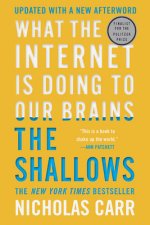
Shallows - What the Internet Is Doing to Our Brains
310 Kč -

Science of Running: Analyze Your Technique, Prevent Injury, Revolutionize Your Training
462 Kč -

Good Services
480 Kč -

Sebastiao Salgado. Gold
1205 Kč -

The Trouble With Being Born
276 Kč -

Witchery
366 Kč -

Magnus Chase and the Gods of Asgard Set
616 Kč -

English Grammar in Use 5th edition
592 Kč -

Paint by Sticker Kids: Unicorns & Magic
223 Kč -

Art of Assassin's Creed Odyssey
782 Kč -

People in the Trees
213 Kč -

Nightfall Coloring Book
365 Kč -

A Certain Hunger
354 Kč -
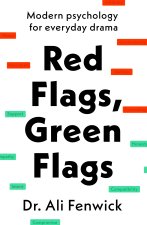
Red Flags, Green Flags
584 Kč -

Bluey: Mini Bluey
221 Kč -

Dai Dark Vol. 5
310 Kč -

Twisted Hate
213 Kč -

Survival in Another World with My Mistress! (Manga) Vol. 1
388 Kč -

I Got a Cheat Skill in Another World and Became Unrivaled in The Real World, Too, Vol. 1 LN
322 Kč -
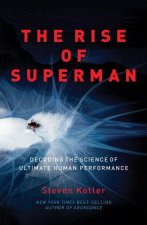
The Rise of Superman: Decoding the Science of Ultimate Human Performance
321 Kč -

Lonely Planet Jordan
437 Kč -

Permanent Record
303 Kč -

Call of the Night, Vol. 4
223 Kč -

Pet Portrait Embroidery
517 Kč -

Chosen
568 Kč -

Rebuilding Milo
1446 Kč -

Legendborn
247 Kč -

Drawing the Head and Hands & Figure Drawing (Box Set)
1612 Kč -

EMPOWERED - Ordinary People, Extraordinary Products
650 Kč -

Jane Eyre
73 Kč -

Ars Goetia: Book I of the Lemegeton
204 Kč -

Java Concurrency in Practice
1288 Kč -

Suzuki Violin School, Vol 1: Violin Part
482 Kč -

Hedge Fund of Funds Investing - An Investor's Guide
1827 Kč -

Dororo
559 Kč -

Lime-trees and Basswoods
4603 Kč -

In the Dust of This Planet - Horror of Philosophy vol. 1
365 Kč -

4-Hour Work Week
447 Kč -

Imaginative Realism
616 Kč -

Fine Balance
302 Kč -

Ruins of Gorlan
223 Kč -

Smith-Waite Tarot Deck Borderless
467 Kč -

The Return of the King
184 Kč -

Bury My Heart At Wounded Knee
323 Kč -

Dandelion Wine
276 Kč -

I Love You More Than Moldy Ham
282 Kč -

The Atlas of Tolkien's Middle-earth
574 Kč -

Manifesting Miracles
387 Kč -

Wisdom of Insecurity
389 Kč -

German All-in-One For Dummies with CD
593 Kč -

The Little Book of Hygge
433 Kč -

Generations
508 Kč -

Warriors Super Edition: Hawkwing's Journey
249 Kč -

Paw Patrol 5-Minute Stories Collection (Paw Patrol)
340 Kč -

Manga in Theory and Practice
494 Kč -

Three Books of Occult Philosophy
1499 Kč -

Magnum Contact Sheets
1078 Kč -

Man in the Brown Suit
247 Kč -

Living with a SEAL
476 Kč -

Pokemon X*Y Complete Box Set
1266 Kč -

Slouching Towards Bethlehem
249 Kč -

The King's Deception
307 Kč -

Geotechnical Engineering Calculations and Rules of Thumb
3552 Kč -

The Sex Club: Xoxo
446 Kč -

ACCA Advanced Performance Management
311 Kč -

Bill Frisell - An Anthology
726 Kč -

Ultimate Band Saw Box Book
1026 Kč -

Питер Пэн и Венди (илл. А. Лоренте)
656 Kč -

Von Kopf bis Fuß
238 Kč -

The Trouble With Being Born
307 Kč -

Leggende napoletane
377 Kč -

Stefan Lochner
773 Kč
Dárkový poukaz: Radost zaručena
- Darujte poukaz v libovolné hodnotě a my se postaráme o zbytek.
- Poukaz se vztahuje na celou naši nabídku.
- Elektronický poukaz vytisknete z e-mailu a můžete ihned darovat.
- Platnost poukazu je 12 měsíců od data vystavení.
Více informací o knize Anti-Natalism
Nákupem získáte 82 bodů
 Anotace knihy
Anotace knihy
The last few decades seem to have begun what has been called 'the childless revolution'. In developed countries, increasingly people are choosing not to have children. The causes of this 'revolution' are many including the belief that to create a new life is to subject someone unnecessarily, and without their consent, to life's many sufferings including death. This belief and its underlying philosophy is known as anti-natalism. There has been a recent resurgence of this philosophy, with David Benatar's book Better Never To Have Been (2006) as a major catalyst. Anti-natalism can be seen as part of a broader philosophy, described here as Rejectionism, which finds existence -directly or indirectly, i.e. as procreation - as deeply problematic and unacceptable. The book traces the development of this philosophy from its ancient religious roots in Hinduism (Moksha) and Buddhism (Nirvana) to its most modern articulation by the South African philosopher David Benatar. It examines the contribution to rejectionist thought by Schopenhauer and von Hartmann in the 19th century and Zapffe, a little known Norwegian thinker, in the 20th century, and most recently by Benatar. Benatar and Zapffe represent this approach most clearly as anti-natalism. The book also devotes a chapter to the literary expression of rejectionist philosophy in the works of Samuel Beckett and J.P.Sartre. In sum, far from being an esoteric doctrine rejectionism has been a major presence in human history straddling all three major cultural forms - religious, philosophical and literary. The book argues that anti-natal philosophy and its practice owe a great deal to three major developments: secularization, liberalization of social attitudes, and technological advances (contraception). Anti-natal attitudes and practice should therefore be seen as a part of 'progress' in that these developments are widening our choice of lifestyles and attitudes to existence. In sum, The book argues that anti-natalism needs to be taken seriously and considered as a legitimate view of a modern, secular civilization. Secondly, the book seeks to situate current anti-natalist thought in its historical and philosophical perspective. Finally, it argues that in order to develop anti-natalism further it needs to be institutionalized as a form rational 'philosophy of life', and more attention needs to be paid to the problems and prospect of putting this philosophy into practice. Author Bio: The author is a social scientist. After receiving a Ph.D degree from the University of London he has been a university professor. This book is a result of his long-standing interest in issues of existence and existential philosophy. Keywords: Anti-Natalism, Existence, Moksha, Nirvana, Rejectionism, Suffering, Schopenhauer, Zapffe, Benatar, Beckett.
 Parametry knihy
Parametry knihy
Zařazení knihy Knihy v angličtině Humanities Philosophy Non-Western philosophy
822 Kč
- Plný název: Anti-Natalism
- Podnázev: Rejectionist Philosophy from Buddhism to Benatar
- Autor: Ken Coates
- Jazyk:
 Angličtina
Angličtina - Vazba: Brožovaná
- Počet stran: 222
- EAN: 9781506902401
- ISBN: 1506902405
- ID: 13708710
- Nakladatelství: First Edition Design Publishing
- Hmotnost: 294 g
- Rozměry: 218 × 140 × 21 mm
- Datum vydání: 26. July 2016
Oblíbené z jiného soudku
-

Light on Yoga
459 Kč -

Freedom from the Known
303 Kč -

Heart of Yoga
476 Kč -

Secret Teachings of Padmasambhava
413 Kč -

Basic Writings of Mo Tzu, Hsun Tzu, and Han Fei Tzu
2512 Kč -

ZEN and the Art of Happiness
327 Kč -

Krishnamurti'S Notebook
420 Kč -
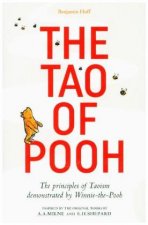
Tao of Pooh
249 Kč -

Hagakure - The Way of the Samurai
388 Kč -

Hagakure
282 Kč -

Dancing Wu Li Masters
381 Kč -

Meditations
329 Kč -

Book of Five Rings
410 Kč -

Light on Pranayama
356 Kč -

Little Book of Ikigai
302 Kč -

Kamasutra
288 Kč -

Analects
276 Kč -
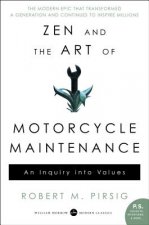
Zen and the Art of Motorcycle Maintenance
459 Kč -

Art of War
236 Kč -

Hyperobjects
667 Kč -
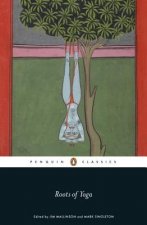
Roots of Yoga
374 Kč -

Art of War
615 Kč -

Psychotherapy East and West
382 Kč -
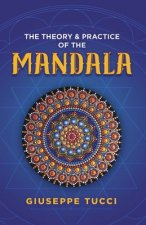
Theory and Practice of the Mandala
223 Kč -

Be As You Are
303 Kč -

Lost Writings of Wu Hsin
576 Kč -

Lightning and the Sun
1450 Kč -

Moving Inward: The Journey to Meditation
327 Kč -

Notes on Spiritual Discourses of Shri Atmananda
348 Kč -

Elixir of the Gnostics
1122 Kč -

Source Book in Chinese Philosophy
1235 Kč -

Twenty Precepts of Gichin Funakoshi
257 Kč -

Wish-Fulfilling Jewel
371 Kč -

Oxford Handbook of World Philosophy
2054 Kč -
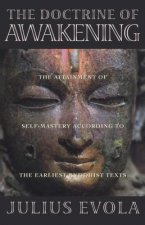
Doctrine of the Awakening
403 Kč -
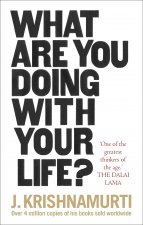
What Are You Doing With Your Life?
378 Kč -

Total Freedom
420 Kč -

Light on Yoga
543 Kč -

Code of the Samurai
321 Kč -

Heart of Awareness
433 Kč -

Yoga Sutras of Patanjali
210 Kč -
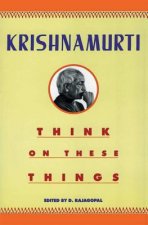
Think on These Things
361 Kč -

Zhuangzi: The Complete Writings
950 Kč -

Shiva Beginner Puja
280 Kč -

Heart
378 Kč -

Kali Puja
583 Kč -

Tree of Yoga
276 Kč -
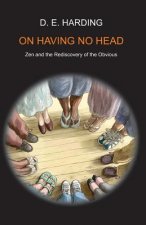
On Having No Head
418 Kč -

Bringing Yoga to Life
417 Kč
Osobní odběr Praha, Brno a 12903 dalších
Copyright ©2008-24 nejlevnejsi-knihy.cz Všechna práva vyhrazenaSoukromíCookies



 Vrácení do měsíce
Vrácení do měsíce 571 999 099 (8-15.30h)
571 999 099 (8-15.30h)